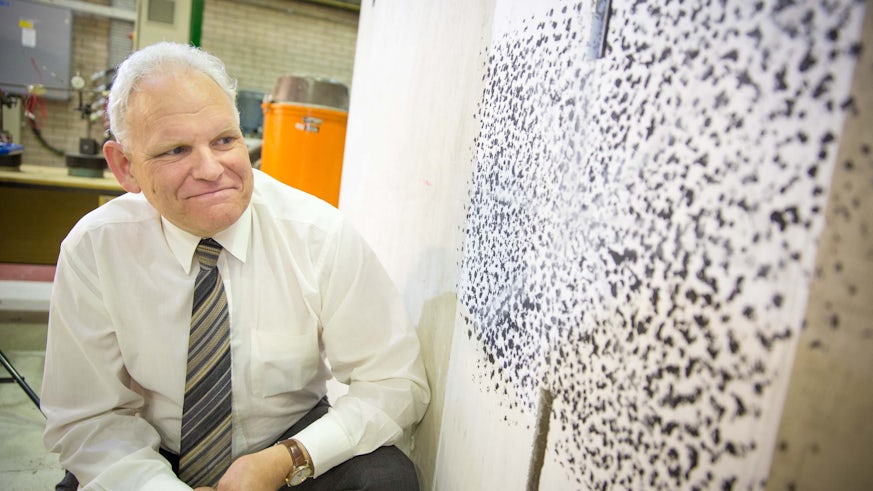Boost for self-healing concrete
16 March 2017

Ground-breaking research into self-healing concrete has received over £4 million in new funding to help create innovative solutions to rising maintenance costs across the UK.
The Cardiff University-led Resilient Materials 4 Life (RM4L) project has received the investment from the Engineering and Physical Sciences Research Council (EPSRC) and will be used to develop smart materials that can self-diagnose damage and self-heal without human intervention.
The announcement came on the same day as Jo Johnson, the Minister of State for Universities, Science, Research and Innovation, visited the University as part of the UK Government’s consultation on the Industrial Strategy Green Paper.
The aim of the RM4L project is to help companies incorporate self-healing technologies into systems that can automatically repair concrete in the built environment.
Science Minister, Jo Johnson said: “The Resilient Materials 4 Life project is a great example of research being used to find solutions and improve ways of working...”

“Through our Industrial Strategy and our record investment of £4.7 billion for research and development, we will continue to support projects like this, ensuring the UK remains at the forefront of innovation for years to come.”
At present, billions of pounds are spent every year maintaining, fixing and restoring structures such as bridges, buildings, tunnels and roads.
It is estimated that around £40 billion a year is spent in the UK on the repair and maintenance of structures, the majority of which are made from concrete.

RM4L will be led by researchers in Cardiff University’s School of Engineering, in collaboration with the University of Cambridge, the University of Bath and the University of Bradford, as well as industrial partners.
RM4L will build on the success of its predecessor, the Materials 4 Life (M4L) project, which last year undertook the UK’s first self-healing concrete trials using materials such as shape-memory polymers, microcapsules and flow networks containing mineral-based healing agents and calcite-forming bacteria.
Professor Bob Lark, Principal Investigator on the project from the School of Engineering, said: “This is a wonderful opportunity to build on the exciting findings of M4L to ensure that we address the full range of complex damage and response scenarios that are experienced by construction materials...”

“We are confident that our research will have a significant impact on the sustainability of our infrastructure and we are very grateful to EPSRC for their vote of confidence in what we are endeavouring to achieve.”
Professor Philip Nelson, Chief Executive of EPSRC, said: “Resilient Materials 4 Life has the potential to revolutionise the way our infrastructure copes with long-term wear and tear and reduce costs significantly.
“Moreover, as part of EPSRC’s continuing support for world-leading research in this vital field it will help, through the upgrading of the nation’s infrastructure, to keep the UK a prosperous and resilient nation.”


